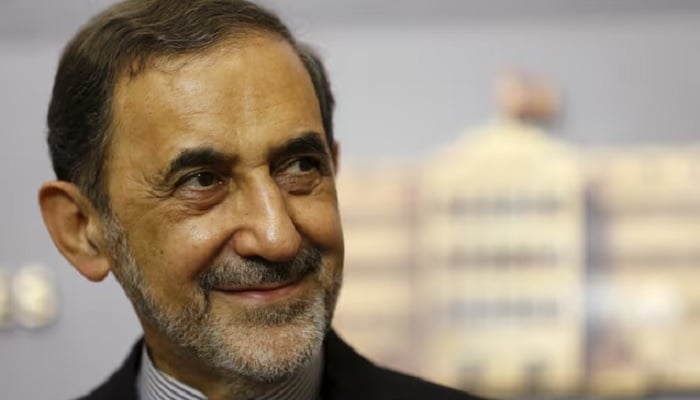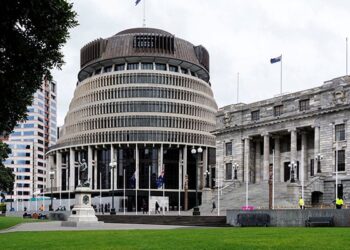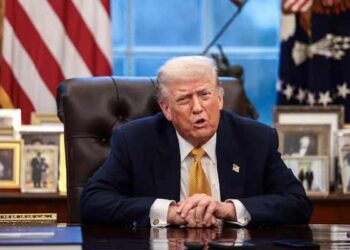Select Language:
Ali Akbar Velayati, the chief foreign policy advisor to Iran’s Supreme Leader Ayatollah Ali Khamenei, was seen smiling as he responded to questions from the press during a news conference in Beirut, Lebanon. —Reuters/File
– A diplomat states that the final peace agreement only faces a single obstacle.
– Armenia needs to revise its constitution, he emphasizes.
– The Armenian Prime Minister has called for a referendum on the proposed constitutional change.
Iran announced on Saturday its intention to block a corridor in the Caucasus region, part of a regional agreement backed by U.S. President Donald Trump, according to Iranian media reports. This move adds uncertainty to a peace initiative that has been praised as a significant strategic development.
Earlier, an Azerbaijani diplomat indicated that the plan, revealed by Trump on Friday, was nearly finalized into a comprehensive peace agreement between Azerbaijan and Armenia, which reaffirmed its support for the initiative.
The Trump Route for International Peace and Prosperity (TRIPP), if implemented, would traverse southern Armenia, connecting Azerbaijan directly to its Nakhchivan exclave and further to Turkey. The United States would have exclusive rights to develop this corridor, with the White House claiming it would boost energy exports and other resource flows.
While Iran, sharing borders with the area, has yet to specify how it might obstruct the corridor, Velayati’s comments complicated considerations of regional security. He stated that military drills in northwest Iran demonstrated Iran’s readiness to prevent any geopolitical alterations.
” This corridor will not be owned by Trump. Instead, it will become a graveyard for Trump’s mercenaries,” Velayati declared.
The Iranian Foreign Ministry initially praised the agreement as a step toward lasting regional peace but issued a warning against foreign interference near Iran’s borders, which could threaten regional stability.
Experts note that Iran, under increasing pressure from the U.S. over its nuclear program and after a 12-day conflict with Israel in June, probably lacks the military capacity to block the corridor.
Moscow has urged Western nations to stay out of the region. President Trump hosted Azerbaijani President Ilham Aliyev and Armenian Prime Minister Nikol Pashinyan at the White House on Friday, where they signed a joint declaration aimed at ending decades of intermittent conflict.
Though Russia traditionally acts as an intermediary and ally to Armenia, it was not included in the talks. Despite Russian border guards stationed along Armenia’s border with Iran, Moscow expressed support for the summit but suggested regional countries should develop solutions themselves with regional backing, criticizing Western mediation efforts in the Middle East.
Turkey, a close supporter of Azerbaijan and a member of NATO, welcomed the agreement.
Conflict over Nagorno-Karabakh, a primarily Armenian-populated mountain region that seceded from Azerbaijan in the late 1980s, has long fueled tensions. Azerbaijan regained full control in 2023, causing nearly all of the 100,000 ethnic Armenians in the area to flee to Armenia.
“A new chapter of peace is opening. We are moving toward lasting stability,” said Elin Suleymanov, Azerbaijan’s ambassador to the UK, projecting that regional prosperity and connectivity could significantly improve.
He acknowledged that the final peace treaty’s timeline depended on Armenia amending its constitution, particularly removing references to Nagorno-Karabakh, a prerequisite for Azerbaijan’s agreement.
“We’re ready to sign as soon as Armenia fulfills its basic commitment to remove territorial claims from its constitution,” Suleymanov stated.
Despite Armenian Prime Minister Pashinyan’s call this year for a constitutional referendum, no date has been set. Parliamentary elections are scheduled for June 2026, and reforms are expected beforehand.
Pashinyan expressed optimism that the Washington summit would end the long-standing conflict and facilitate new transportation links that could unlock economic opportunities. The timing of the transit rail’s operation remains uncertain, with Azerbaijan stating it depends on U.S.-Armenia cooperation.
Analyst Joshua Kucera from the International Crisis Group pointed out that many questions remain unanswered, especially regarding customs procedures, security protocols, and reciprocal access between Armenia and Azerbaijan — potential stumbling blocks in implementing the agreement.
Suleymanov asserted that Russia has not been disadvantaged by the developments, emphasizing that all regional actors could benefit if they choose to do so.







